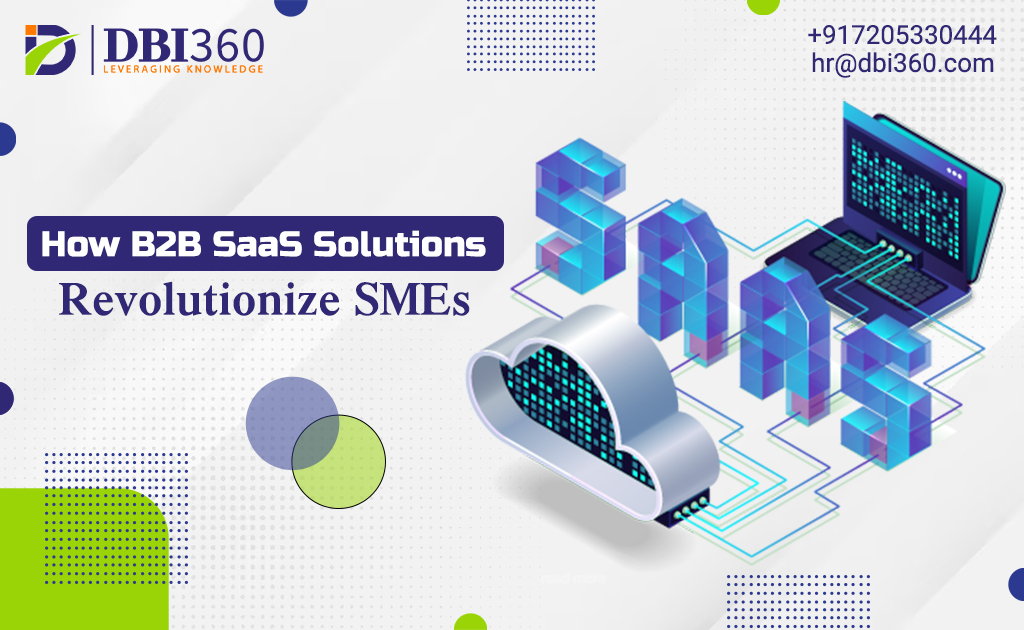Small and medium-sized enterprises (SMEs) face numerous challenges in today’s digital era, from competition to limited resources. However, the emergence of B2B SaaS (Software as a Service) solutions has paved the way for a transformative journey for SMEs, enabling them to thrive in a dynamic business landscape.
In this blog, we will explore the significant impact of B2B SaaS solutions on small businesses, uncovering the benefits, success stories, and strategies for leveraging these innovative tools to unlock the full potential of SMEs.
Benefits of B2B SaaS Solutions for SMEs:
-
Reduced Upfront Investment: B2B SaaS eliminates the need for expensive infrastructure and hardware, allowing SMEs to pay as they go and scale their usage based on business needs.
-
Enhanced Flexibility and Scalability: SMEs can easily adapt to changing business needs and access a wide range of software and tools without the constraints of traditional on-premises solutions.
-
Improved Cost Efficiency: B2B SaaS eliminates the need for costly software licenses, maintenance fees, and extensive IT infrastructure, enabling SMEs to allocate resources to critical areas.
Success Stories of SMEs Leveraging B2B SaaS:
-
- Streamlined Operations:
- Small retail businesses optimized inventory management.
- Streamlined sales processes using cloud-based POS software.
- Enhanced Customer Relationship Management:
- Small consulting firm improved customer interactions.
- Increased sales by implementing a CRM system as a B2B SaaS solution.
- Collaboration and Remote Work:
- Small design agency transformed project management and collaboration processes.
- Used B2B SaaS tools.
- Enabled seamless remote work.
- Reduced overhead costs.
- Streamlined Operations:
Strategies for Leveraging B2B SaaS Solutions:
-
- Identify Business Needs:
- Assess current pain points.
- Identify areas where B2B SaaS can bring value.
- Align goals and objectives with the chosen solution.
- Conduct Thorough Research:
- Explore the B2B SaaS market.
- Find solutions that fit business requirements.
- Consider functionality, pricing, support, and scalability.
- Seamless Integration and Data Security:
- Ensure compatibility and integration capabilities.
- Prioritize data security and compliance.
- Select a B2B SaaS provider.
- Identify Business Needs:
Conclusion
B2B SaaS solutions have become a game-changer for small businesses, driving growth and enabling transformation. With reduced upfront investment, enhanced flexibility, and improved cost efficiency, SMEs can leverage B2B SaaS solutions to streamline operations, enhance customer relationships, and enable seamless collaboration. By identifying their unique needs, conducting thorough research, and prioritizing integration and data security, small businesses can harness the power of B2B SaaS to unlock their full potential in today’s competitive business landscape.

